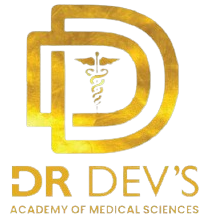Competency-based medical education (CBME) has gained prominence as a transformative approach to medical training, emphasizing the attainment of specific competencies as the primary focus of education and assessment. The significance of assessment in CBME, the key principles guiding assessment strategies, and innovative approaches to evaluating learner competencies within the framework of CBME. Access convenient online Fellowship Courses after MBBS, MS, and MD. Propel your medical career forward with ease and flexibility.
The Significance of Assessment in Competency-Based Medical Education
Assessment lies at the heart of CBME, serving as a fundamental tool for evaluating learners’ progression towards achieving defined competencies. Unlike traditional medical education, which often relied heavily on knowledge-based assessments, CBME emphasizes the demonstration of competencies in clinical practice, communication, professionalism, and other essential domains. Through robust assessment strategies, educators can gauge learners’ readiness for independent practice, identify areas for improvement, and provide targeted feedback to support their development as competent and proficient physicians. Expand your medical horizons with Post-MBBS Fellowship & Diploma Courses curated by top-tier medical education consultants.
Key Principles Guiding Assessment Strategies in CBME
- Competency-Based Assessment: Assessment in CBME is centred on the evaluation of specific competencies outlined in the curriculum. These competencies are defined based on the roles and responsibilities expected of a physician, encompassing not only clinical skills but also interpersonal, communication, and ethical dimensions of medical practice. Explore specialized Fellowship Courses after MD, MS, and MBBS, tailored for Doctors’ professional growth.
- Formative and Summative Assessment: Formative assessment, designed to provide ongoing feedback and support learning, is integrated throughout the training period. Summative assessment, on the other hand, evaluates overall achievement of competencies and readiness for progression or certification. Unlock advanced medical expertise with Fellowship Courses tailored for Doctors. Trust the best in medical education consulting for your career advancement.
- Direct Observation: Direct observation of learners in clinical settings is a cornerstone of CBME assessment, allowing educators to assess performance in real-world contexts and provide immediate feedback. This approach fosters the development of clinical reasoning, procedural skills, and professionalism. For doctors seeking to advance their careers: explore a spectrum of Fellowship Courses after MBBS, MD, and MS, both online and offline, with the premier medical education consultant.
- Multi-Source Feedback: Gathering feedback from multiple sources, including peers, faculty, patients, and self-assessment, offers a comprehensive view of learners’ performance and behavior, facilitating a more nuanced evaluation of competencies. For doctors seeking to advance their careers: explore a spectrum of Fellowship Courses after MBBS, MD, and MS, both online and offline, with the premier medical education consultant.
- Programmatic Assessment: CBME emphasizes the use of programmatic assessment, which involves the collection and analysis of assessment data across multiple points in time and contexts to inform decision-making and program improvement. For doctors seeking to advance their careers: explore a spectrum of Fellowship Courses after MBBS, MD, and MS, both online and offline, with the premier medical education consultant.
Innovative Assessment Approaches in Competency-Based Medical Education
- Entrustable Professional Activities (EPAs): EPAs are a central concept in CBME, representing essential tasks that a physician should be able to perform independently. Assessing learners’ ability to carry out EPAs in authentic clinical settings provides valuable insights into their readiness for practice. Explore specialized Fellowship Courses after MD, MS, and MBBS, tailored for Doctors’ professional growth.
- Simulation-Based Assessment: Simulation offers a controlled environment for assessing clinical and procedural competencies, allowing learners to demonstrate their skills, decision-making, and communication in lifelike scenarios. Unlock advanced medical expertise with Fellowship Courses tailored for Doctors. Trust the best in medical education consulting for your career advancement.
- Workplace-Based Assessment Tools: Structured workplace-based assessment tools, such as mini- clinical evaluation exercises (mini-CEX), direct observation of procedural skills (DOPS), and case based discussions, enable real-time evaluation of learners’ clinical performance and interactions with patients. For doctors seeking to advance their careers: explore a spectrum of Fellowship Courses after MBBS, MD, and MS, both online and offline, with the premier medical education consultant.
- Portfolios and Reflective Practice: Learners maintain portfolios documenting their learning experiences, achievements, and reflections on their development as medical professionals. Portfolios provide a means for learners to track their progress and engage in reflective practice. For doctors seeking to advance their careers: explore a spectrum of Fellowship Courses after MBBS, MD, and MS, both online and offline, with the premier medical education consultant.
- Objective Structured Clinical Examinations (OSCEs): OSCEs are widely used in CBME to assess clinical skills, communication, and professionalism through a series of standardized stations, each targeting specific competencies. For doctors seeking to advance their careers: explore a spectrum of Fellowship Courses after MBBS, MD, and MS, both online and offline, with the premier medical education consultant.
Challenges and Considerations in CBME Assessment
While CBME assessment offers numerous advantages, it also presents challenges that educators and institutions must address:
- Standardization: Ensuring consistency and standardization in assessing competencies across diverse clinical settings and learner populations is essential for the validity and reliability of assessment data. Explore specialized Fellowship Courses after MD, MS, and MBBS, tailored for Doctors’ professional growth.
- Faculty Development: Equipping educators with the skills and resources to effectively assess competencies, provide meaningful feedback, and engage in workplace-based assessment is crucial for the success of CBME. Unlock advanced medical expertise with Fellowship Courses tailored for Doctors. Trust the best in medical education consulting for your career advancement.
- Program Evaluation: Continuous evaluation of assessment processes and outcomes is necessary to refine and improve CBME programs, aligning them with evolving healthcare needs and educational best practices. For doctors seeking to advance their careers: explore a spectrum of Fellowship Courses after MBBS, MD, and MS, both online and offline, with the premier medical education consultant.
- Learner Engagement: Engaging learners as active participants in their assessment, goal-setting, and feedback processes is vital for fostering ownership of their learning and professional development. For doctors seeking to advance their careers: explore a spectrum of Fellowship Courses after MBBS, MD, and MS, both online and offline, with the premier medical education consultant.
In conclusion, assessment in competency-based medical education plays a pivotal role in shaping the educational journey of future physicians. By embracing innovative assessment strategies grounded in the principles of CBME, educators can effectively evaluate and support learners as they acquire the competencies essential for delivering high-quality, patient-centered care. For doctors seeking to advance their careers: explore a spectrum of Fellowship Courses after MBBS, MD, and MS, both online and offline, with the premier medical education consultant.




Https://zeleniymis.Com.ua/
4 August 2024Fastidious answer back inn retjrn of this issue wkth genuine arguments aand telling everything regarding that. https://zeleniymis.Com.ua/
Https://zeleniymis.Com.ua/
4 August 2024Fastidious answer back in return of this issue with
genuine arguments and telling everything regarding that. https://zeleniymis.Com.ua/
Tlovertonet
17 September 2024You really make it appear so easy along with your presentation however I find this matter to be actually something which I believe I might by no means understand. It sort of feels too complex and extremely large for me. I’m taking a look ahead in your subsequent post, I will attempt to get the hold of it!